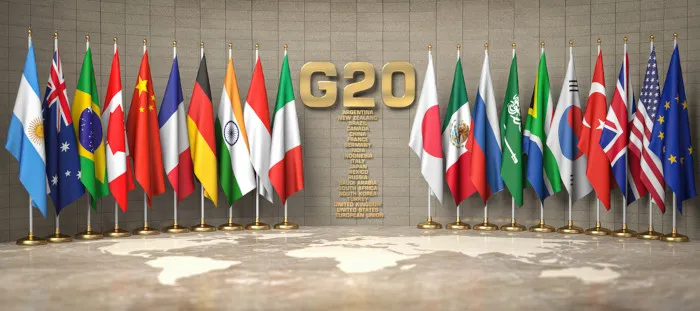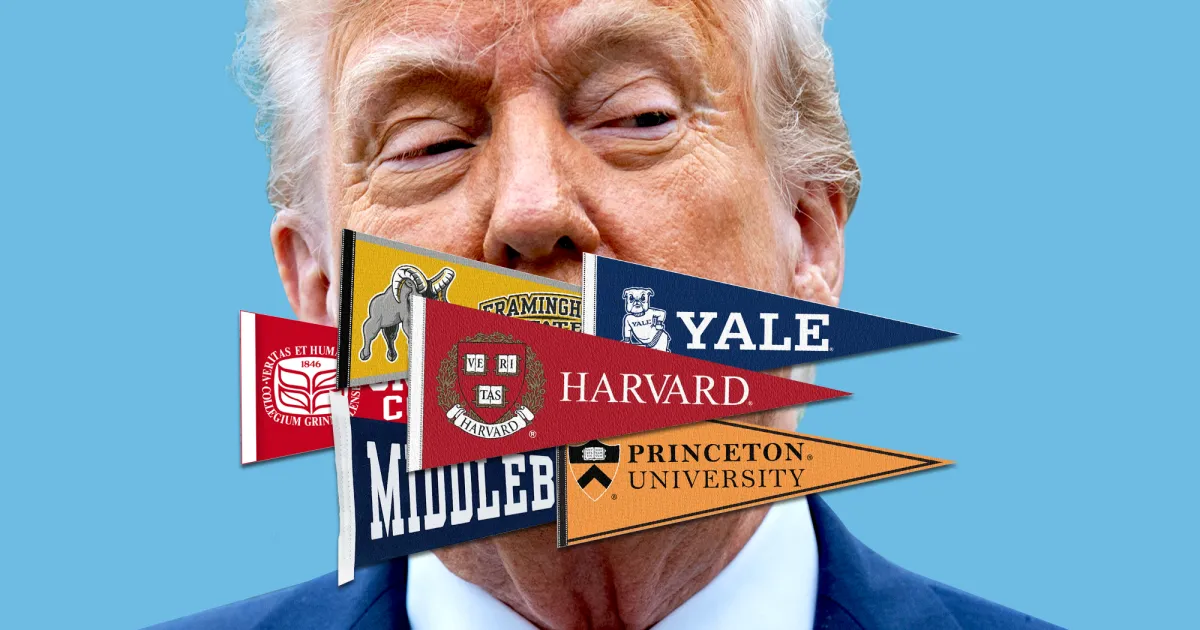Brazil’s turn to China
The G20 summit in Rio de Janeiro shed light on how a distant U.S. risks losing the greatest power and ally in its neighboring region

Disclaimer: The views and opinions expressed in this article are those of the author and do not necessarily reflect the views or positions of the Bertha Lutz International Analysis Laboratory (LAI-USP).
Written by Michaela Bauman
President Biden traveled to Brazil in November to attend the G20 summit in Rio de Janeiro after briefly stopping in Manaus, where he became the first sitting U.S. president to visit the Amazon.[1] While Biden hoped to cement his administration’s legacy of climate, health, and food security at the G20, his presidential loss has destabilized the traditional world order and left many U.S. allies, including Brazil, searching for more stable partnerships.
The absence of U.S. leadership at the G20 presented an opportunity for President Xi Jinping to further establish the People’s Republic of China (PRC) as a champion of South-South cooperation and a promising partner to Brazil. While the last U.S. president to visit Brazil was Barack Obama in 2011, Xi Jinping has been to Brazil three times since becoming president, in 2014, 2019, and 2024, following his participation in the G20 with a state visit to Brasília.[2][3]
As the G20 host, Brazil hoped to leverage its leadership role to fight for a greater voice in global politics. Brazil, a country 90% the size of the U.S. with the eighth largest economy in the world, is the greatest power in the region neighboring the U.S. but has grown tired of being overshadowed in global dialogue, turning to forums like BRICS to advocate for a more balanced world order.[4]
Brazil’s current frustrations are a result of years of being overlooked in U.S. foreign policy since Washington’s widely criticized involvement in the military dictatorship of 1964 to 1985. While the U.S. rightly stepped back from Brazil due to the damaging legacy from this era and more immediate concerns at the U.S. southern border, China spent the last 30 years establishing strong economic, diplomatic, security, and technological ties with Brazil.[5] The U.S. has ignored Brazil for far too long, ceding the upper hand to Beijing as U.S.-China tensions rise.
The PRC’s expanding role in Brazil has raised hopes of economic opportunity, distracting Brazilians from the environmental, developmental, labor, and security costs of this involvement. China became Brazil’s largest trading partner in 2009 and is responsible for almost a third of all Brazilian exports, mostly in the agricultural sector.[6] Brazil is also the second-largest recipient of Chinese state loans and a major recipient of Chinese overseas foreign direct investment.[7] Chinese state-owned firms are heavily involved in Brazilian energy development. Petrobras, Brazil’s state-run oil company, announced plans to open a Chinese subsidiary to help triple its oil exports to China and advance oil refining projects.[8]
As the two countries have become economically intertwined, diplomatic relations have also warmed, with Brazil increasingly voicing support for Chinese policies. Brazil signed a comprehensive strategic partnership with China, the highest ranking given to PRC allies, and recognizes China’s claim over Taiwan.[7]
During the pandemic, the PRC is believed to have used its advantage in vaccine production to pressure Brazilian regulators to allow Huawei, the Chinese telecommunications company, to develop Brazil’s 5G networks.[7][9] Regulators had originally banned Huawei, siding with warnings from the U.S. that China could use Huawei to collect intelligence, monitor its dissidents, and control and possibly disable networks. [7] However, regulators went back on their decision after China supplied Brazil with millions of vaccine doses.[7][9] In 2022, Huawei established a two-year 5G pilot project in Brazil.[7]
Brazil has maintained a foreign policy strategy of neutrality for years, choosing to benefit from cooperation with the U.S. and China simultaneously.[10] While Brazil’s approach might protect its autonomy and advance its interests today, the Brazilian government is not thinking long-term. Brazil’s growing dependency on China could mean that in the event of a Taiwan invasion, for example, the choice of who to side with will no longer be theirs. The strength of shared democratic values between the U.S. and Brazil will not hold up against the lure of Chinese investment.
While President Biden has advocated for the U.S. to bolster its leadership in Latin America and prioritize greater economic engagement, the U.S. cannot outcompete China’s economic might and must instead play to its own strengths in education, cybersecurity, military, and climate cooperation.[7] Under the close friendship of President Trump and former Brazilian President Jair Bolsonaro in 2019, Brazil gained the status of a major non-NATO ally (MNNA) of the U.S., paving the way for expanded and institutionalized defense cooperation.[11] The MNNA designation grants Brazil greater access to the U.S. defense industry and participation in joint military exchanges, exercises, training, and research and development.
Some evidence has been uncovered that when a mob of Bolsonaro supporters stormed Brazil’s federal government on January 8th, 2023, an attack resembling January 6th in the U.S., the Biden Administration reached out to key Brazilian military officials to dissuade them from carrying out Bolsonaro’s plans for a coup.[12] At this fragile moment in Brazilian democracy, the U.S. quietly employed its close defense relationship with Brazil to ensure regional stability and prevent the rise of a repressive regime.
The strategy of working together on shared interests aligns with Brazil’s desire to avoid taking a stance on the U.S.-China debate. Biden successfully employed this strategy at the G20 by working with Brazilian President Lula da Silva to create the Brazil-U.S. Partnership for the Energy Transition, which promotes clean growth and energy security.[13]
With President Trump’s return to the White House during a year when Brazil will host COP30, climate security will no longer be an overlapping priority between the countries. It is unclear what lines of cooperation will remain as Trump and Lula’s worldviews clash in almost every area.[14] While Brazil declined to formally join the Belt and Road Initiative during the November state visit, Lula and Xi Jinping signed 37 economic cooperation agreements, indicating de facto alignment despite Brazil’s intention to appear neutral between the U.S. and China.[15] Without dedicated effort from the Trump Administration to seek common strategic goals and maintain stability in the U.S. relationship with Brazil across presidencies, Lula may publicly turn further toward China and abandon the partnership with the U.S. when it matters most.
Brazil is a multiracial democracy with a vibrant private sector that has much more in common with the U.S. than it does with China. In 2024, the U.S. celebrated 200 years of diplomatic relations with Brazil whereas China established relations only 50 years ago.[6][16] Still, many Brazilians have begun to see South-South cooperation as a more fruitful partnership after years of U.S. disinterest in Brazil have led to disappointment and distrust in the relationship.[16] As tensions in the Taiwan Strait and conflicts in Gaza and Ukraine escalate, the U.S. cannot afford to lose its positional advantage in this hemisphere.
The U.S. must learn from its mistakes during the Cold War when its hard-line approach in Latin America pushed its neighbors closer to the Soviet Union. Latin America is yet again a theater of Great Power tensions, and as President Trump returns to office, the U.S. must prioritize multifaceted cooperation with Brazil to position itself as the partner of choice instead of pressuring Brazil to cut off China.
The author of this opinion article, Michaela Bauman, is a Yale University Fox International Fellow at the University of São Paulo in Brazil where she researches U.S.-Brazilian relations. She graduated from Yale College in May 2024 with a B.A. in Global Affairs and certificates in Portuguese and Spanish. During summer 2023, she interned in the Office of the Secretary of Defense, where she was responsible for issues related to China and the Indo-Pacific.
Endnotes
- Khalid, Asma. “Biden Marks His Climate Legacy during Amazon Visit, Asserting
‘nobody’ Can Reverse It.” NPR, November 17, 2024. https://www.npr.org/2024/11/17/nx-s1-5191837/biden-amazon-rainforest-climate-trump. - “Travels of the President – Brazil.” Office of the Historian. Accessed October 16, 2024.
https://history.state.gov/departmenthistory/travels/president/brazil. - Moreira, Assis. “Xi Jinping to Promote Belt and Road during Visit to Brazil.” Valor
International, May 7, 2024. https://valorinternational.globo.com/foreign-affairs/news/2024/05/07/xi-jinping-to-promote-belt-and-road-during-visit-to-brazil.ghtml. - Vardy, Nicholas. “Why Brazil Is the Country of the Future. and Always Will Be.” Medium, March 29, 2023. https://medium.com/@nicholasvardy/why-brazil-is-the-country-of-the-future-and-always-will-be-ab72ddb2563e.
- Ellis, Evan, Leland Lazarus, Ted Piccone, and Valerie Wirtschafter. “How Are the United States and China Intersecting in Latin America?” Brookings, September 26, 2024. https://www.brookings.edu/articles/how-are-the-united-states-and-china-intersecting-in-la
tin-america/. - Leon, Lucas Pordeus. “China Factor Marks 200 Years of Relations between Brazil and USA.” Agência Brasil, June 3, 2024. https://agenciabrasil.ebc.com.br/en/internacional/noticia/2024-06/china-factor-marks-200-years-relations-between-brazil-and-usa#:~:text=Since%202009%2C%20China%20has%
20been,percent%20of%20its%20total%20imports. - Roy, Diana. “China’s Growing Influence in Latin America.” Council on Foreign Relations, June 2023. https://www.cfr.org/backgrounder/china-influence-latin-america-argentina-brazil-venezuela-security-energy-bri.
- Nogueira, Marta. “Exclusive: Brazil’s Petrobras Plans China Subsidiary in Push to Boost Ties, CEO Says.” Reuters, August 31, 2023. https://www.reuters.com/business/energy/brazils-petrobras-plans china-subsidiary-push-boost-ties-ceo-says-2023-08-31/.
- Londoño, Ernesto, and Letícia Casado. “Brazil Needs Vaccines. China Is Benefiting.” The New York Times, March 15, 2021. https://www.nytimes.com/2021/03/15/world/americas/brazil-vaccine-china.html.
- Magnotta, Fernanda. “A Balancing Act for Brazil’s Foreign Policy.” Americas Quarterly, February 8, 2024. https://www.americasquarterly.org/article/a-balancing-act-for-brazils-foreign-policy/.
- Berg, Ryan, Clara Cramer, Maxwell Kushnir, Emily Santor, Otto Svendsen, and Likai Zhao. “The Future of U.S.-Brazil Security Cooperation: Opportunities Presented by Brazil’s Major Non-NATO Ally Status.” CSIS, July 15, 2022. https://www.csis.org/analysis/future-us-brazil-security-cooperation-opportunities-presented-brazils-major-non-nato-ally.
- Stuenkel, Oliver. “How U.S. Pressure Helped Save Brazil’s Democracy.” Foreign Policy, February 20, 2024. https://foreignpolicy.com/2024/02/20/brazil-bolsonaro-coup-us-biden-democracy-electio
n-chips-lula/. - “FACT SHEET: Continuing a Legacy of Leadership at the G20.” U.S. Embassy & Consulates in Brazil. Accessed November 21, 2024. https://br.usembassy.gov/fact-sheet-continuing-a-legacy-of-leadership-at-the-g20/.
- Santoro, Maurício. “Brazil’s Big Moment on the Global Stage Gets Complicated.” Americas Quarterly, November 18, 2024. https://americasquarterly.org/article/brazils-big-moment-on-the-global-stage-gets-complicated/.
- Barcellos, Thaís, Sérgio Roxo, and Gabriel Sabóia. “Lula and Xi Jinping Sign 37 Deals in Brasília, but Brazil Skips Belt and Road.” O Globo, November 20, 2024. https://oglobo.globo.com/english/noticia/2024/11/20/lula-and-xi-jinping-sign-37-deals-in-brasilia-but-brazil-skips-belt-and-road.ghtml.
- Lula da Silva, Luiz Inacio. “50 Years of the Brazil-China Diplomatic Relations: Celebrating the Past and Launching the Foundations of the Future.” China Daily, August 15, 2024. https://www.chinadaily.com.cn/a/202408/15/WS66bd306aa3104e74fddba011.html.
Share this content:



